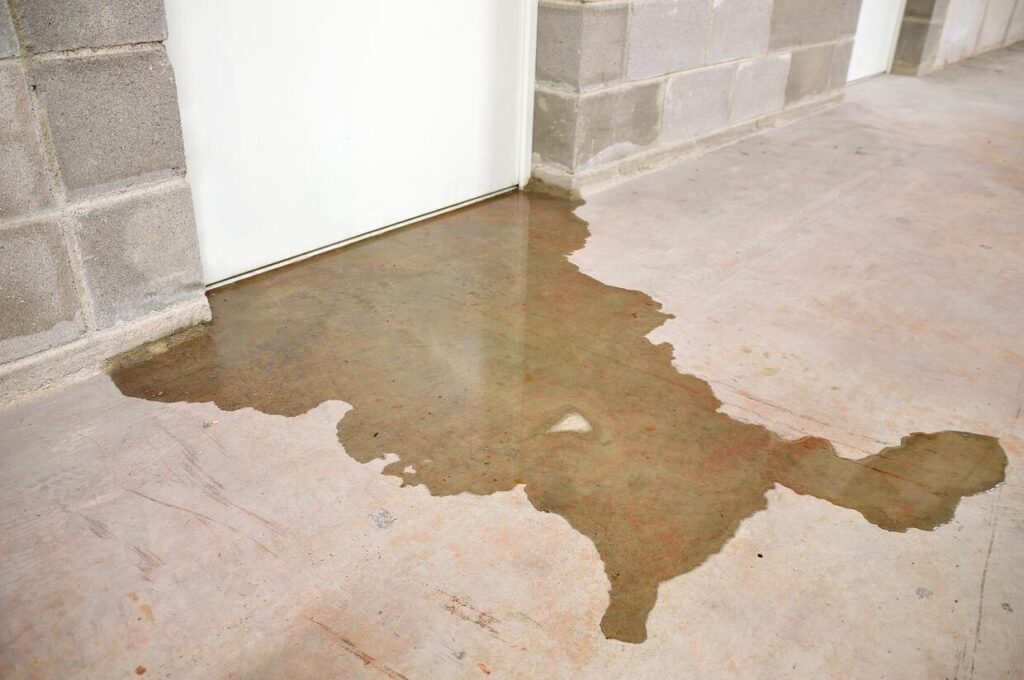5 min read
Imagine coming home and discovering that your basement is flooding! As a property owner, this is a very stressful situation to find yourself in. Whatever the reason––heavy rains, burst pipes, or appliance leaks, water seeping in can cause damage to both your belongings and your property. In worst-case scenarios, it can weaken your property’s foundation and cause damage to the entire structure.
The good news is, that through proper precautions and proactive measures, you can learn how to stop your basement from flooding before it becomes an even bigger issue. Therefore, taking the time to understand how to stop basement flooding in its tracks (and prevent it from happening in the first place) is an absolute must.
So, if you ever find yourself faced with a flooded basement, we cover all you need to know.
Why Is My Basement Flooding?
There are several ways in which your basement can start flooding. Some of the most common issues can include:
- Foundation Cracks: During heavy rains, cracks in your foundation and outer walls lead to water seeping into the basement. These cracks can be a combination of poor construction, pressure from surrounding soil, or unaddressed signs of wear and tear on your property.
- Plumbing and Drainage Issues: Leaking pipes in the walls or floor or cracks and clogs in your drain system can cause water to seep from the soil into the basement.
- Unsealed Windows: Improper installation of basement windows or issues with the window well drainage can lead to accumulating water.
- Soil-Related Issues: Poor soil grading or hydrostatic pressure can force water through your foundation and into the basement.
- Gutter and Downspout Issues: Your gutters and downspouts divert water from your foundation. If your gutters are clogged or damaged, water can overflow and roll toward your foundation.
- Damaged or Faulty Sump Pumps: Sump pumps are designed to operate when the underground water reaches a certain level during heavy rainfall. If it fails, the motor can’t divert the excess water from your basement.
How To Stop a Basement From Flooding
It’s best not to wait for your property to sustain costly damage. Even before the heavy rain season begins, these steps are the answer to how to stop flooding in basement areas:
Evaluate Your Property’s Grading
The slope of your property affects whether water flows away from your home or toward your home, which can lead to water seeping into your foundation and basement. Have a professional evaluate your property’s grading and ensure that the ground around your property slopes away from the foundation.
Clean and Regularly Maintain Your Gutters and Downspouts
Clogged gutters and downspouts can’t effectively divert water from your foundation, increasing the risk of basement flooding. Most gutter systems only require cleaning every six months, but you might need to do it quarterly if you have plenty of trees and greenery likely to clog your gutters. Additionally, consider extending your downspouts to release water at least six feet away from your foundation.
Inspect and Repair Your Foundation
Have a professional inspect your foundation at least twice a year. They can immediately address any gaps or cracks that could lead to basement flooding. If you live in an area prone to floods and heavy rain, consider waterproofing your basement walls to help against moderate rainfall.
Install or Upgrade Your Sump Pump
If you live in an area prone to heavy rains or flooding, a sump pump can be your property’s final defense against basement flooding and foundation water damage. Sump pumps activate when water reaches a certain level and diverts water through a pipe that discharges it from your property. If you already have a sump pump, inspect and repair it after heavy rainfall. Consider investing in an upgraded sump pump or a battery backup in case of a power outage.
Check Your Plumbing
Leaks and bursts in your home’s plumbing system can lead to significant basement flooding. To prevent this, have your pipes inspected, repaired, and maintained as necessary. This also protects the other areas of your property against long-term water damage.
Contact Your Local Property Restoration Team
If there are signs of property damage from basement flooding, have a professional inspect your basement. They can recommend additional preventative measures to reduce the risk of flooding due to leaks or natural disasters.
What to Do If Your Basement is Already Flooding?
Don’t panic and follow these steps to minimize damage:
- Find the Water Source: If a household issue caused the flood, like a broken appliance or pipe, turn off the water. Wait for weather-related floods to subside before taking action.
- Prioritize Safety: Assume the water is dirty. Wear boots, gloves, and a mask. Avoid navigating through high levels of water.
- Remove Wet Items: Take out wet furniture, carpets, and submerged items if it’s safe to do so.
- Clear Water If Possible: To clean up small amounts of water, use brooms, buckets, and mops.
- Improve Airflow: Open doors and windows for fresh air. If safe, use fans and dehumidifiers to speed up drying.
- Call Professionals: Contact water damage experts promptly to handle the situation, preventing further property damage and mold growth.
Let Restoration 1 of Bryan and College Station Help With Basement Flooding Issues
While basement flooding can be a significant concern, proactive measures and maintenance can make a significant difference in keeping your basement dry. If you’re currently experiencing basement flooding or have concerns about your home’s vulnerability, don’t hesitate to contact Restoration 1 of Bryan and College Station. Our certified restoration technicians can assess your situation and help you understand the best steps to keep your basement dry and your property safe.
Contact us today or call (979) 481-6127 to schedule an inspection.


